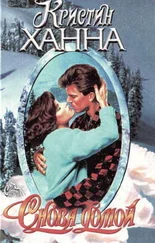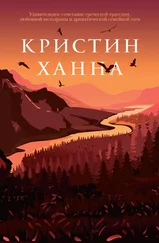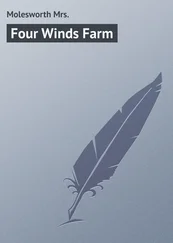“We can’t follow the crops?” Elsa stood there a moment staring at him, wondering how he could stand to be a part of this system. They couldn’t follow the crops and keep the cabin, which meant they had to stay here, without work, waiting for cotton, living on relief and credit. “So, we’re slaves.”
“Workers. The lucky ones, I’d say.”
“Would you?”
“Have you seen the way folks live out by the ditch bank?”
“Yes,” Elsa said. “I’ve seen it.”
Holding her bag of groceries, she walked out of the store.
Outside, people milled about: women hanging laundry, men scavenging for wood, young children looking for any bit of junk to call a toy. A dozen stoop-shouldered women in baggy dresses stood in line for the two women’s toilets. There were more than three hundred people living here now; they’d pitched fifteen new tents on concrete pads.
She looked at the women, really looked. Gray. Slanted shoulders. Kerchiefs on untended hair. Drab dresses mended and re-mended. Fallen stockings. Worn shoes. Thin.
Still, they smiled at one another in line, talked, wrangled their runaway children, those young enough not to be in school. Elsa had stood in that line enough to know that the women talked about ordinary things—gossip, children, health.
Life went on, even in the hardest of times.
TWENTY-NINE
In May, the valley dried out beneath sunny days and everything grew and blossomed. In June, the cotton plants flowered and needed to be trimmed. True to Welty’s word, those who lived at Welty Farms growers’ camp were the first to get these precious jobs; Elsa spent hours working beneath the hot sun. Most of the valley’s ditch-bank residents, including Jeb and the boys, had hitchhiked north for work. Jean stayed back with the girls and the stuck-in-the-ground truck that was all they had left.
Today, just before dawn, a big truck pulled into the Welty camp, chugging smoke. The people standing in line barely waited for it to stop before they climbed aboard. Men and women got into the back and crammed in tightly, hats drawn low, gloves on (gloves they’d had to purchase at the company store for an exorbitant price).
Loreda looked up at Mom, who was pressed close to the wooden slats directly behind the cab. She had been the second person in line when the truck pulled up this morning.
“Make sure Ant does his homework,” Mom said.
“Are you sure I can’t—”
“I’m sure, Loreda. You can pick cotton when it’s ready; that’s it. Now go to school and learn something so you don’t end up like me. I’m forty and most days I feel a hundred. Besides, there’s only a week of school left anyway.”
A man closed the gate at the back of the truck. Within moments the truck was chugging out to the road, heading to the cotton fields. It wasn’t hot yet, but it soon would be.
Loreda went back into the cabin. Already the small interior had begun to grow warm. Though she knew it was a harbinger of summer heat to come, Loreda still appreciated the warmth after the cold of winter. She opened the air vents and went to the hot plate and started the oatmeal she and Ant would have for breakfast.
As light came into the cabin, Ant stumbled out of bed and walked to the door. “I gotta pee.”
He came back fifteen minutes later, scratching his privates. “Did Mom get work?”
“She did.”
He sat on a wooden crate at the table they’d scavenged. After they finished eating, Loreda walked Ant to school. “I’ll meet you at the cabin after school,” she said. “Don’t dawdle. Today’s laundry.”
“It’ll be hot.” Ant grimaced and went into his classroom.
Loreda headed to her own classroom. As she reached the tent flap, she heard Mrs. Sharpe say, “Today the girls are going to learn to mix cosmetics, and the boys will do a science project.”
Loreda groaned. Making cosmetics.
“We all know how important beauty is in finding a man,” Mrs. Sharpe said.
“No,” Loreda said aloud. “Just … no.”
She put her foot down on making cosmetics. Last week the girls had spent hours learning to sift dry ingredients and knead bread, while the boys had been taught how to “fly” in a replicated plywood airplane cockpit with painted-on instruments.
She didn’t skip school often, because she knew how much her mother cared about education, but honestly, sometimes Loreda just couldn’t stand it. And Lord knew Mrs. Sharpe would give Loreda the evil eye either way. Her questions in class were not appreciated. She ducked into their cabin, found her latest library book, and headed out of camp.
Out on the main road, she felt her spine straightening, her chin lifting. She swung her arms as she walked to town. What could be better than skipping school to visit the library? She’d read The Communist Manifesto this week and she was eager to find something equally enlightening. Mrs. Quisdorf had mentioned something by a man named Hobbes.
Main Street was busy today. Men in suits and women in spring dresses walked toward the movie theater; the marquee read: TOWN MEETING.
Loreda walked into the library and headed straight for the checkout desk.
She handed Mrs. Quisdorf the book.
“And what did we learn from this?” Mrs. Quisdorf asked in a lowered voice, although it didn’t look like anyone else was here. The library was empty most days.
“It’s all about class struggle, isn’t it? Serfs against landlords throughout history. Marx and Engels are right. If there was only one class, where everyone worked for the good of all, it would be a better world. We wouldn’t have people like the big growers making all the money and people like us doing all the work. We starve while the rich get richer.”
“From each according to his ability, to each according to his needs,” Mrs. Quisdorf said, nodding. “That’s the general idea. Who’s to say if it actually works, though.”
“Hey, what’s going on at the theater? I thought it was closed down.”
Mrs. Quisdorf looked back through the windows. “Town meeting. It’s politics, I guess you could say. Happening right under our noses.”
“Would they let me in?”
“It’s open to the public, but … well … sometimes it’s better to study politics from a nice, safe historical perspective. The real thing can be pretty ugly.”
“How can they stop me from going? I’m a resident of the state now.”
“Yes, but … well, be careful.”
“I’m reliably careful, Mrs. Q.,” Loreda said.
Outside, a hot June sun shone down. She left the side street and emerged onto Main, passing a soup kitchen with a long line of people out front.
Loreda merged into the well-dressed crowd and entered the theater. Inside, red velvet curtains bracketed a raised stage. Gilt trim highlighted intricately carved woodwork. Within minutes, most of the seats were taken.
Loreda took a seat on the aisle beside a man in a black suit and hat who was smoking a cigar. The smell of the smoke made her feel slightly sick.
A man stepped up onto the stage, took his place behind the podium.
The crowd quieted.
“Thank you all for coming. We all know why we’re here. In 1933, the Federal Emergency Relief Administration was set up to be temporary help for folks coming into the state. We didn’t know we’d be overrun with migrants. And who knew so many of them would be of weak moral character? Who knew they’d want to live on relief? Thanks to FDR’s support for business, we’ve ended federal relief, but the state still pays people who have been here for a year. And frankly, the state just doesn’t have the resources to handle the need.”
Weak moral character?
A man in the crowd stood up. “We hear they aren’t going to pick. Why should they? They’re living the good life on the dole. From my taxes!”
Читать дальше












